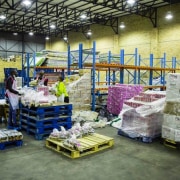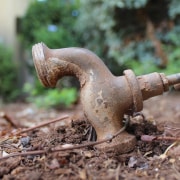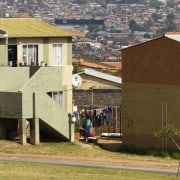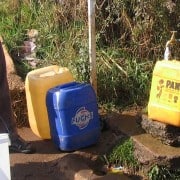|
Getting your Trinity Audio player ready...
|
Guest contributor
The neighbourhood is very quiet. We live next to Newlands Rugby Stadium where the railway runs close by. No trains have run since Saturday; usually in the mornings they are like an alarm clock to the parents getting their kids ready for school, i.e. me. Traffic can start from 06h00 under normal circumstances, but there are only parked cars on the road now. No packed lunches, no school runs.
The lockdown is being strictly observed, most of my neighbors are home, not that we are mingling. Some are exercising in the parking area by our complex. I am increasingly taking on a level of housework beyond my usual meagre contribution, making meals, seeing to children, cleaning the kitchen, doing laundry, sweeping, dusting and mopping. There is also an obsessive-compulsive cleaning thing kicking in. My wife twisted her ankle on the eve of the lockdown. It meant a visit to the doctor in Newlands and to a local hospital in Claremont for x-rays on Thursday, when we were meant to be preparing for lockdown. Fortunately no broken bones, but she is hobbled and not able to do much of what she normally does – on her feet!
The visit to the doctor and the hospital was something to remember. Strict health protocols were in place, I remained in the car for both visits. Our doctor feared a fractured metatarsal given my wife’s discomfort and was confident the local emergency room would process her efficiently. He noted that the practice had seen more than one Covid-19 patient.
Having visited the emergency room a few times in the past years with freak accidents involving my youngest son, I was not so optimistic. It ended up being a much quicker visit than under normal circumstances. They had two Covid-19 tents outside the hospital for anyone with symptoms. My wife said inside the hospital she felt safe and well taken care of – examined, X-rayed, X-rays reviewed, wrapped and fitted with crutches – no further incident in under three hours – confident that she was not exposed to any threat. We were grateful that her ankle was not broken but the reality of the lockdown, how the hospitals were readying themselves, began to dawn on me…
We did not stock up, no special runs to the supermarket before lockdown. On Sunday, I decided to venture out at around 14h00 to our local PicknPay, about two kms from home. There were no cars on the road. No lines to get into the store, very few shoppers and a decent complement of staff who mostly seemed in good spirits although the vibe felt more like one of distrust and stranger danger than solidarity and camaraderie. I ventured in, entrusted with a long list of enough groceries to keep us out of the shops for the week. At the checkout till, it was noticeable that PnP had put in place large plexiglass dividers between the till operators and the customers to assist in social distancing. All in all, it was an unusual, if not uncomfortable experience; everything was in order but nothing felt normal. The only thing I couldn’t get on our list was self-raising flour – completely out stock. It seems that everyone in the neighbourhood had the same idea – get baking!
Back at home, after seeing to the children and my inadequate efforts at keeping things clean, I absorb on TV and read on the internet as much local and international media as I can. Local – to see how the lockdown is playing out, global to understand better where we (South Africa) are in this re-active cycle. This and the connection with loved ones abroad strangely comforts one in the feeling that we are in this together while in reality we are all apart.
This along with the WhatsApp groups and other connections, leads to informational and emotional overload. Perhaps there are lessons to be learned elsewhere on how to help the sick, the vulnerable, elderly, the frontline responders including dealing with psycho-social trauma and the perils of social isolation…
In Cape Town, like everywhere, the numbers of infected and deaths keep climbing. Currently, the greatest number of cases in the Cape are here in the southern suburbs, tipping 100 infections and climbing (at the time of writing on Monday 31 March).
According to the health department’s covid-19 website, as of 5 April 2020 there are 454 confirmed cases in the Western Cape with two deaths reported.
Image from Wikimedia Commons








